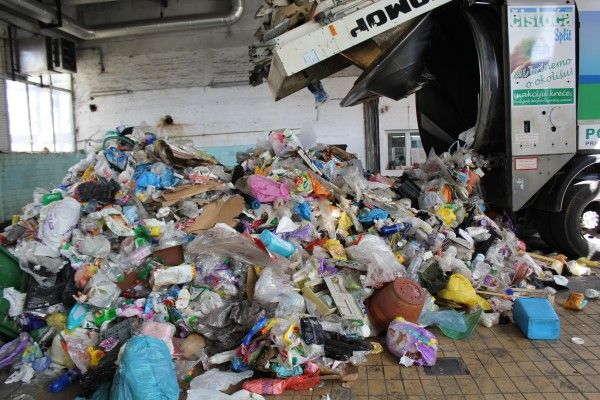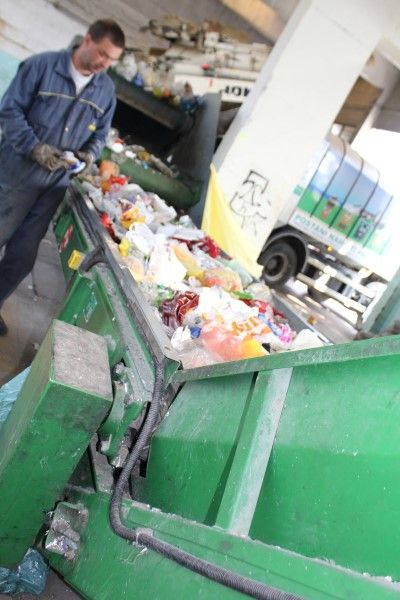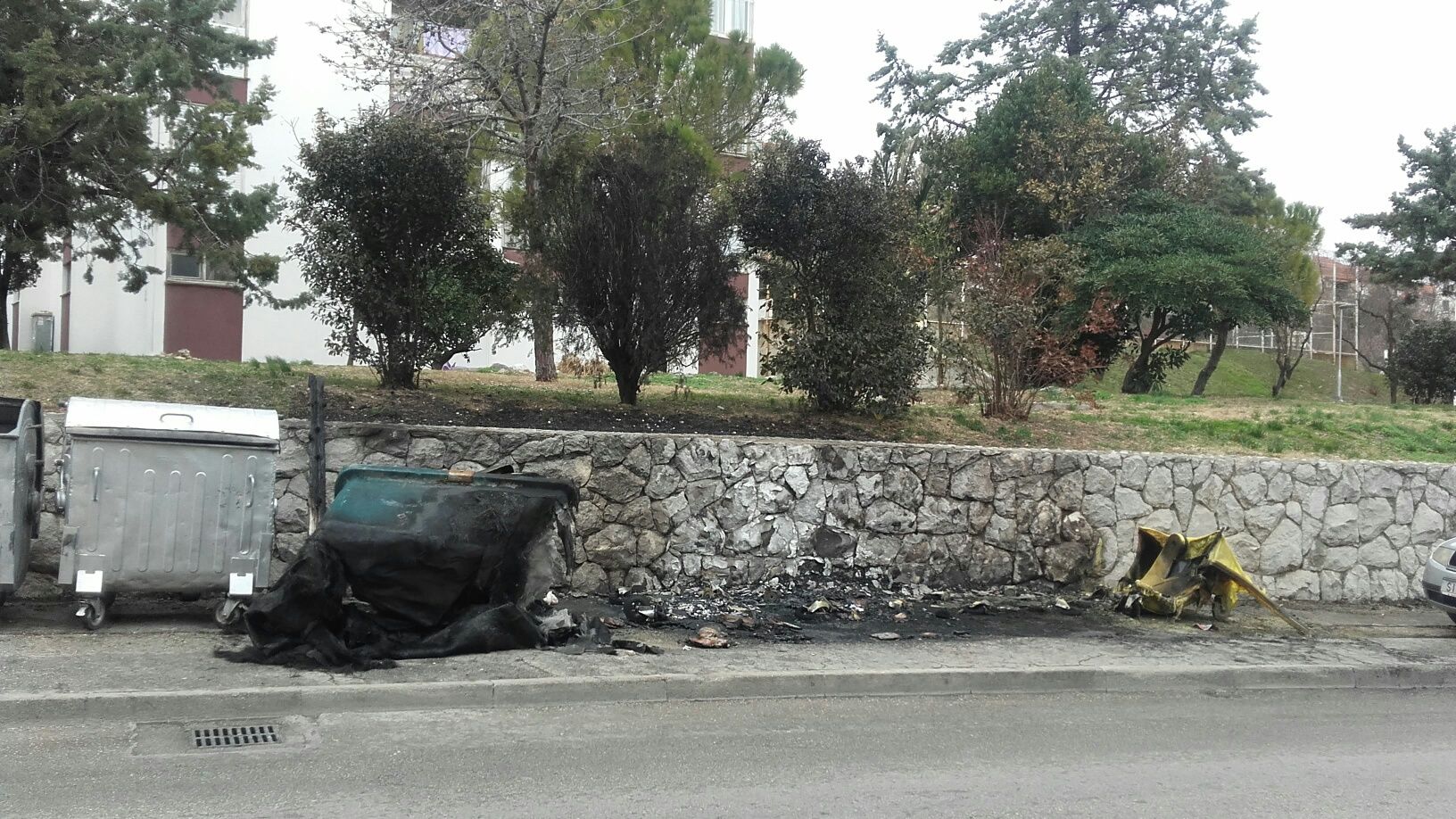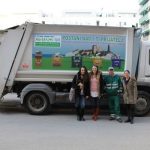On Thursday 16th March 2017, Total Eco Croatia visited Jolly to speak to manager Jurica Šarić to learn more about the recycling process.
Just over a month ago, we wrote an article busting the myth on whether recycling really happens in Split. As a foreigner living here, I was told – “don’t bother recycling, it all goes to the same place” – which was disheartening to say the least; but rather than fall victim to the rumour-mill, we decided to investigate the matter further. We arranged a meeting with Čistoća where we confronted all the ‘myths’ of recycling and discovered that Čistoća are in fact, doing their job. Click here to read the full article.
The response from the article was positive, but many still asked – “what actually happens with the recycling once it is collected?” So, we went to Jolly to see the process in action and speak to Jurica Šarić, the manager of Jolly.
We timed our visit so we could see the Čistoća trucks arrive at the facility. As the trucks unloaded, it was clear to see it was the plastic collection day – once again, busting the myth that the same trucks collect everything and it all ends up in the landfill.

As the rubbish is dumped, it slowly moves up the conveyor belt, where two staff sort the plastic – it is sorted into 7 categories, with 10 different sub-categories. As discussed in the previous article, if there is anything else amongst the plastic like tin or tetrapak, it will be sorted accordingly.

Čistoća and Jolly have no part to play in actually processing recyclables. Čistoća’s role is to collect the rubbish and care for the city cleaning, while Jolly’s role is to sort, package and sell it on. Jolly has a warehouse in Radonić of 18,000m², where they store all of the sorted recyclables until they are sold. To give an idea of numbers, on average they receive 9 tonnes of plastic, 40 – 50 tonnes of tetrapak and 400 tonnes of paper per month. Tetrapak being the most difficult to sell, they recently sold it after one year of storage! Austria is the greatest importer of Croatia’s waste.
We wanted to learn more about what happens to the recyclables after they are processed, unfortunately Croatia exports 99% of its recyclables – the concept of recycling was implemented before the infrastructure to manage it properly. Uni Papier and DS Smith are one of the few companies who process paper in Croatia; besides this, if anyone wants to use processed recycled materials, they need to import it back – making it less likely that Croatian companies use recycled materials.
We asked Jurica what he would like the public to know –
- Separate: “First of all, everyone just needs to start separating accurately, putting everything in the right bins (as some recycling bins still end up in the landfill because it has been contaminated with waste)
- Reduce: A lot of items like single use yogurt, sweet wrappers, chips, pasta packages etc. are not recyclable. Reduce your use of unnecessary items, buy bio products, shop in the markets or if there is a choice, choose cardboard packaging over plastic.
- Reuse: buy a reusable water bottle and bags. Plastic water bottles, if reused can be harmful as bacteria can easily grow. While plastic bags can be recycled, there is very low demand for them, so buy reusable bags and avoid small single-use plastic bags where possible.
- Compost: Bio-waste is the most predominant waste in the landfill and is extremely harmful to the environment. Learn to compost, maybe even as a community, to reduce this waste.
- Recycle: It goes without saying, if everyone separates and recycles properly, there would be zero waste going to the landfills!
So many people had an opinion on this topic, yet Čistoća and Jolly face their own challenges that most are unaware of – as we watched the truck unload the plastic, a huge rock fell out, someone had placed a mini-boulder in the bin, which, if it had made it to the conveyor belt, would have damaged the system. Also in recent months, someone, or a group of people have been setting fire to Čistoća’s paper bins, 5 – 7 bins being burnt per week. This is senseless destruction and only hinders all positive moves many individuals and companies are trying to take.

While we still need to hold our communities and local authorities accountable and continue to push for better sustainable solutions on a local and National level; we each have our part to play in our day-to-day lives.
Do your part to #keepcroatiabeautiful.










